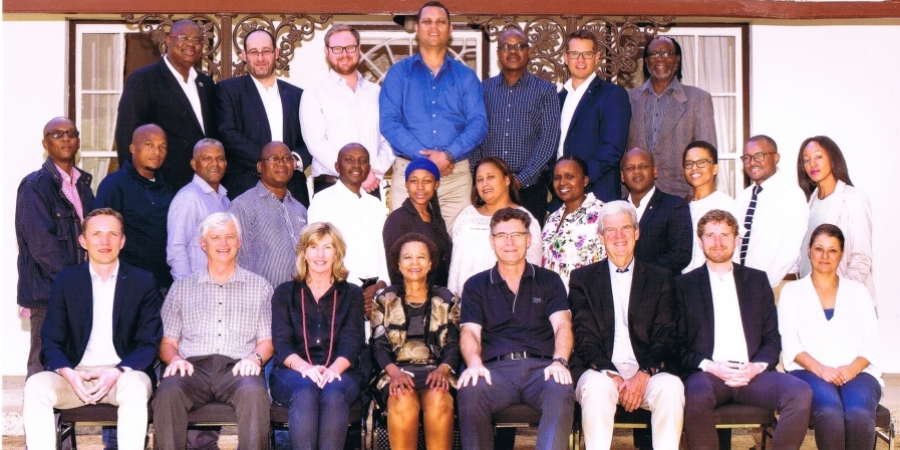The first module starts with 20 decision-makers at the business school in Stellenbosch
What responsibilities do companies and their executives in the transformation process in South Africa bear? Where are ethical opportunities and obstacles? How can deficits on the rule and attitude level be overcome? These questions were the focus of module I of the "International Business Ethics Colloquium", which took place in April 15 to 19 on the initiative of the WCGE and with the support of the Peace Springer Foundation at the renowned Business School of the University of Stellenbosch (USB).
In an international application, 20 senior executives from South Africa, Botswana, Namibia and Nigeria qualified for the program earlier this year. Under the direction of Prof. Piet Naudé, Director of USB, and Prof. Arnold Smit, Head of Social Impact, they dealt intensively and especially interactively with the current challenges of responsible economic activity: in panel discussions, working groups and through various excursions.
The driving forces of the program were civil rights activist and former World Bank director Mamphela Ramphele, Dr. Leon Wessels, former chairman of the constituent assembly of South Africa, and Ben Thereon, CEO of the influential organization Undoing Tax Abuse (OUTA), among others. Dr. Martin von Broock and Prof. Philipp Schreck from the WCGE connected the discussion to Wittenberg. At the end of June there will be module II of the colloquium with contributions from science and practice. For this program u.a. Transparency International Germany and BASF pledged their support.
The aim of the WCGE initiative is to further the promotion of ethical leadership skills together with renowned partners. At the same time, it is about learning from each other through a view of suitable formats and concepts

